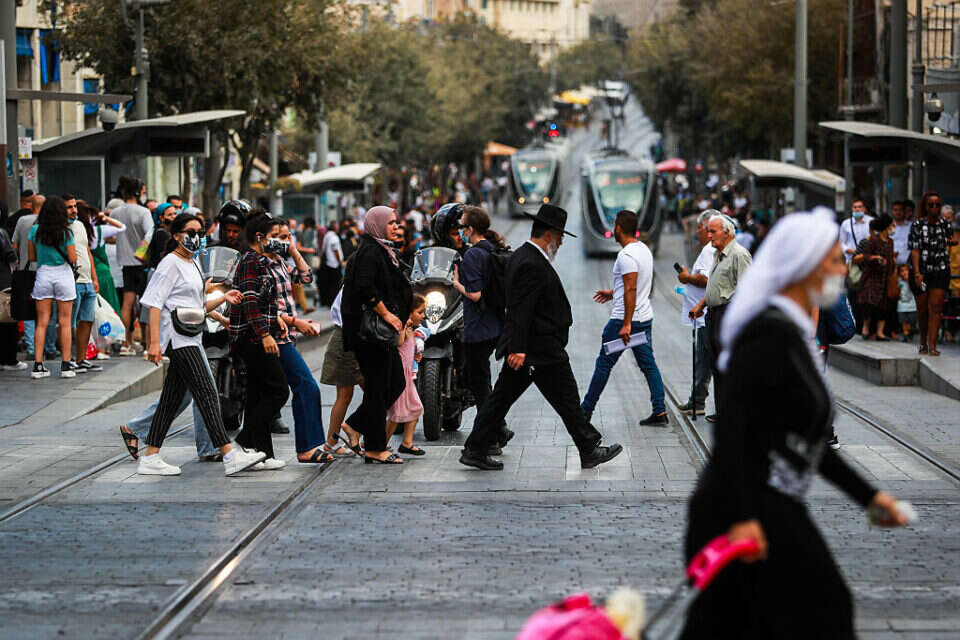The 2021 calendar created a meeting of the German anniversary of Rabin's assassination, November 4, with Rosh Chodesh Kislev, which was celebrated the next day.
One of us will open the morning at the synagogue in his hometown, Efrat;
The other will stand at the Western Wall, as is his custom every Rosh Chodesh, to pray alongside the women of the Western Wall.
Is there this difference to keep us away?
To make us hate a man for his wife?
God forbid.
We are both Jews, Zionists, lovers of Jerusalem.
We are both moved by the Western Wall each time, and we are both equally horrified when the place to which Jews carried their longings, a place where one can also argue, becomes an arena of cursing, spitting and violence.
There are disputes over the origin of the name Kislev. One interpretation holds that the name Kislev is from the language Kisel or Kisla, words meaning "hope." Further down the same line note that hope is for blessing rains. Indeed, before us is a need for new hope, and one that depends more on us than on the forces of nature. This is a hope she took from the assassination of Rabin: it is permissible and proper to discuss and argue, but within the boundaries of a dialogue that cannot be crossed; Hopefully we will be able to discuss the place of each of us under heaven - Orthodox, Conservatives, Reforms - in the Western Wall and in the Jewish world in general, in a family and loving discourse even if our way is different; Hope we do not lose the ability to talk between us. This hope is the connecting line between that murder and today's Rosh Chodesh.
"We did not stifle the fire of fanaticism and hatred. We allowed intolerance, brutality, to enter through the gap that was opened, and to expand it. Thus, the longing for Yitzhak Rabin darkens the concern for the society he left behind in his assassination."
These words were said by the late Lt. Col. Amnon Lipkin-Shahak at the State Memorial to mark three years since the assassination of the Prime Minister. It seems that these words are still true today.
There are cracks in Israeli society and in the Jewish world, some of which are voluntary of segregation, some of which are physical and geographical cracks, even cracks of language and culture.
There were times when we knew how to fill in those cracks, build bridges to connect.
In the present time it seems that fanaticism, hatred, impatience and brutality make it difficult for us to build the same bridges, and prevent us from having an in-depth dialogue with the different even when we disagree.
We can blame the social networks, the great confusion they create and the ability to say and write blunt things towards the opposite side behind the keyboard.
But it is precisely in this connection between that murder and Rosh Chodesh today, between the ideological debates of that time around Oslo and the territories of Eretz Israel and the conflicts and riots of the day at the Western Wall plaza, that the customs are expected to stand and serve as an example.
We as public leaders must stand at intersections where there are conflicts and show that it is possible otherwise.
We chose differently.
We chose to talk, to argue, sometimes even to understand that we would not agree.
We chose in the hope that a bridge could be built and walked on.
Because we know where fanaticism and hatred lead.
The late Lipkin Shachak expressed this well and added in the same speech: "In one society, crowded with people and opinions like ours, it is reasonable and obvious that there will be a debate about the most fateful matters of our lives here.
It is important that there is a discussion;
It is important that minority opinions be heard with the utmost attention, that the hardships, fears, inhibitions be taken into account - the fruit of suspicion and suffering of the individual and of many. "
In our joint statement we seek to pour another tier, addressing the leaders of the public and the selves of each one. Public leaders can and should make an impact. Type in a tweet, then read again and give up some arrows before launching. To be interviewed without getting excited. Brave public leaders will also know how to get to the points of friction themselves to determine in their bodies what they are saying and how.
The light hand on the keyboard trigger;
The clenched fist in front of the Western Wall;
The fiery, hateful look - enough.
We ended up with these.
A simple rule we taught our father Abraham: "And Abram said unto Lot, Let there be no strife, I pray thee, between me and thee, and between my wife and thy neighbor; for we are brethren."
We are brotherly people even when there are no agreements, even when the way is different.
We must embrace the hope from the meeting of dates, the hope that we can have a dialogue and not agree, a hope that we can have a dialogue and remember that we are brothers, a hope that despite the cracks that were and will remain, we will build countless bridges and meet on them.
Oded Ravibi is the head of the Efrat Council;
Dr. Yizhar Hess is the Deputy Chairman of the World Zionist Organization

